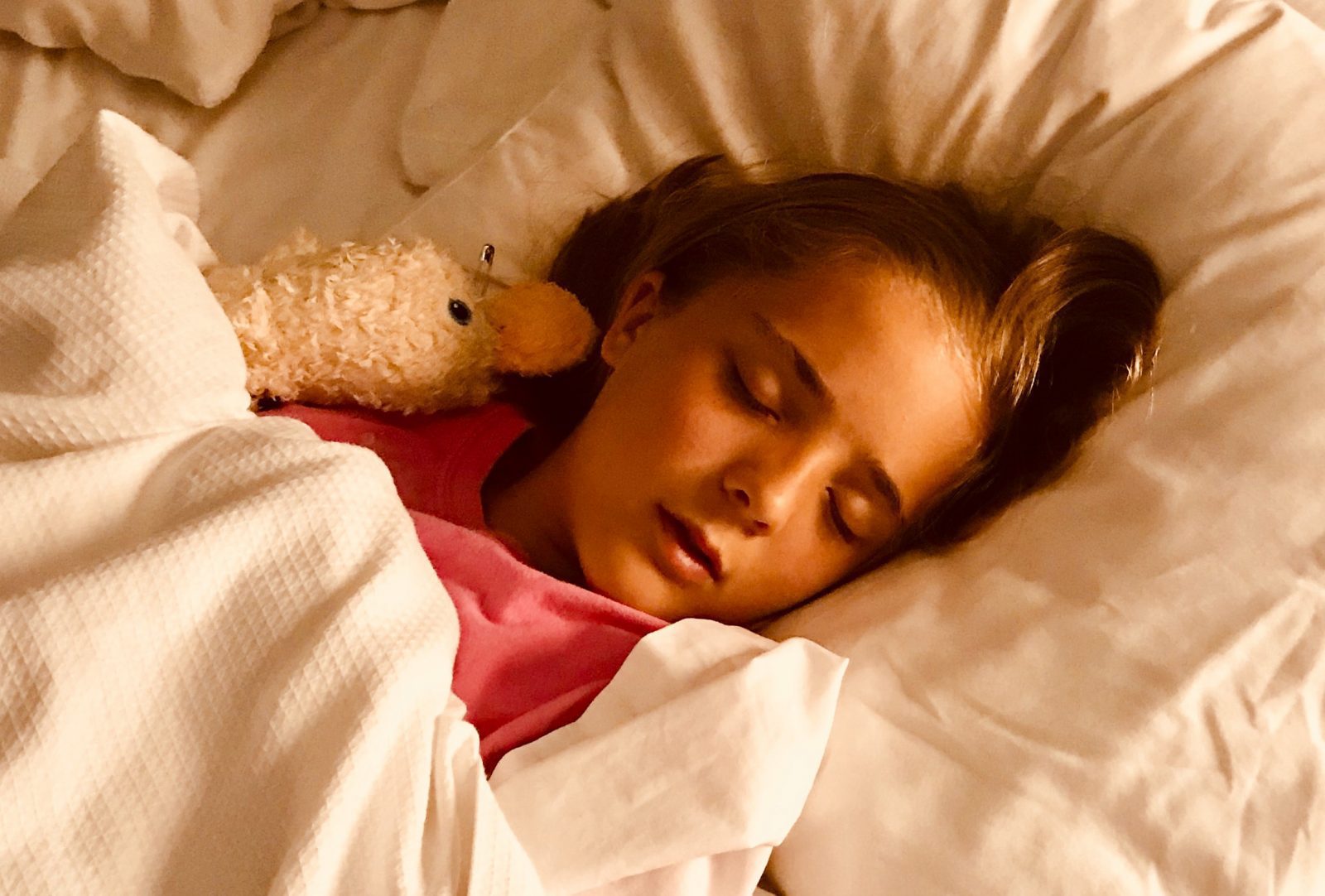A Good Night’s Sleep Reduces Anxiety

by Sandi Schwartz
All of us have seen what happens to our kids if they skip a nap or go to bed too late (can we say cranky monster on the loose?!). But did you know that sleep deprivation can also make them more anxious?
Sleep plays a major role in how we function. According to the National Alliance on Mental Illness, poor sleep has been shown to significantly worsen the symptoms of many mental health issues including anxiety. It is clear that good sleep is necessary for prevention and recovery of anxiety.
A University of Colorado study found that toddlers with insufficient naps were more anxious and frustrated. Researchers observed facial expressions of two and three-year-olds after they skipped their typical nap and then on another day after they had their normal nap. The results show that the loss of a nap made the children less excited about positive events and more frustrated with challenges they faced than when they were well-rested. The sleepy children had more difficulty expressing their emotions. Over time, this lack of sleep may shape their developing emotional brains and put them at risk for lifelong, mood-related problems.
Another study from the University of Pennsylvania found that individuals who were limited to only 4.5 hours of sleep a night for one week reported feeling more stressed, angry, sad, and mentally exhausted. When they went back to a normal sleep routine, they experienced a dramatic improvement in mood.
How Sleep is Linked to Anxiety
When our children don’t sleep enough, they can experience the following changes that lead to anxious feelings.
Body Unable to Repair Itself
Sleep is the time when our body repairs itself, such as relaxing muscles tense from stress. Without sleep, stress builds up, which can lead to more anxiety the next day.
Brain Stress
Scientists believe that during sleep our brain regenerates neurons that affect various areas of thought, emotion, and health. When we don’t sleep enough, these neurons do not regenerate, and in some cases stop functioning altogether.
Physical Symptoms
Sleep deprivation can exacerbate any physical symptom or illness. When children and teens don’t get enough sleep, they can experience headaches, nausea, muscle soreness, tremors, slurred speech, or dizziness. Sometimes sleepiness can also lead to odd sensations like tingling or aches and pains. These physical symptoms can be alarming, causing worry that something is seriously wrong.
Elevated Adrenaline
Scientists have shown that lack of sleep leads to an increase in levels of adrenaline. Because anxiety can be caused by chronic adrenaline, there is a link between too little sleep and feeling anxious.
Anticipatory Anxiety
University of California at Berkeley researchers discovered that a lack of sleep may play a key role in triggering the brain regions that contribute to excessive worrying. Sleep deprivation makes anticipatory anxiety worse by firing up the brain’s amygdala and insular cortex, regions associated with emotional processing. The resulting brain activity mimics the abnormal activity seen in people with anxiety disorders. In addition, those who are naturally anxious are more sensitive to the effects of not getting enough sleep.
Creates a Negative Cycle
Sleep anxiety, or insomnia, is a problem for 40 million Americans including many children. Sometimes it is hard to tell whether a child’s anxiety leads to sleep problems or if the sleep problems are causing the anxiety. This can become a frustrating cycle if a child is not sleeping well and suffering from anxiety.









